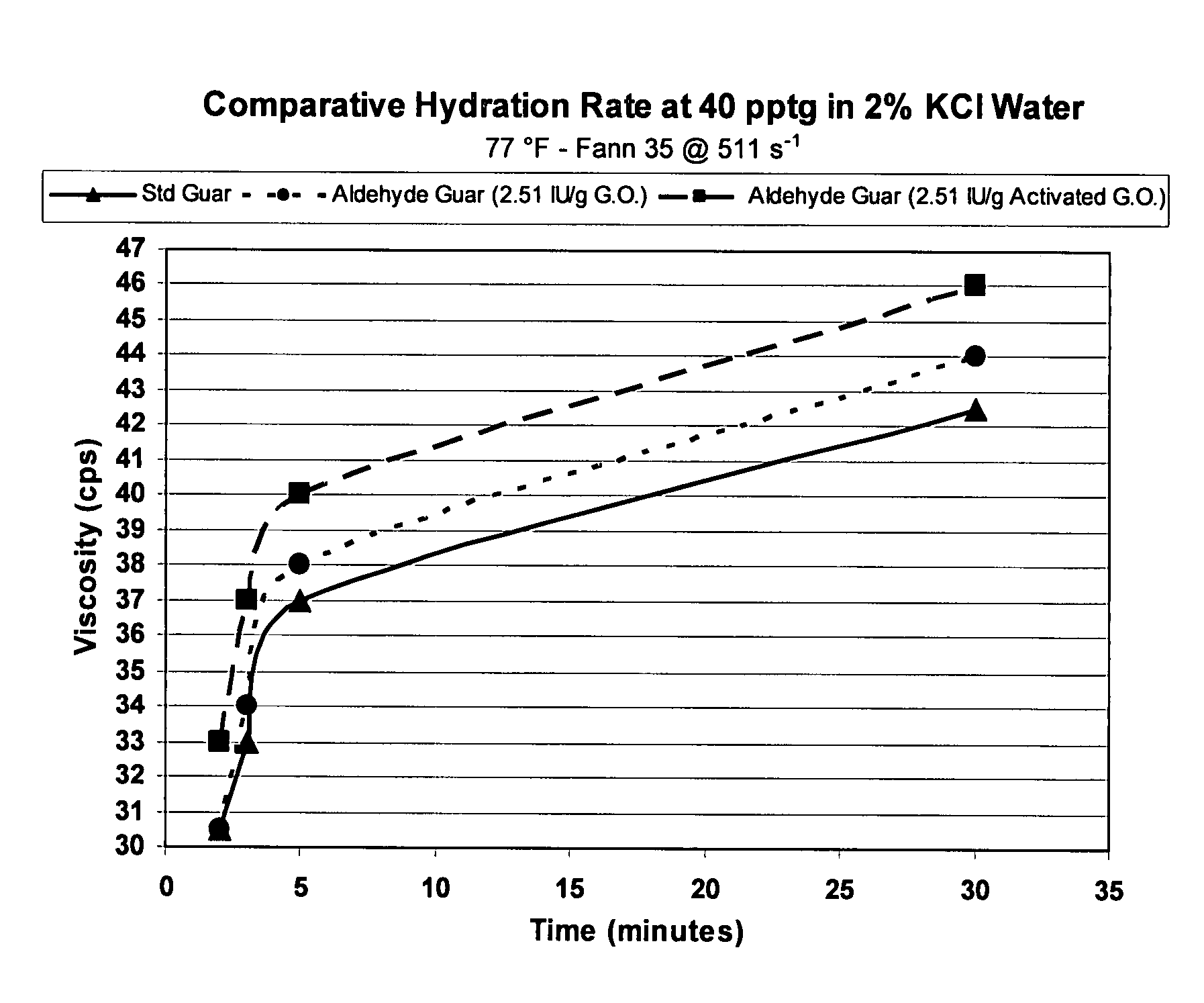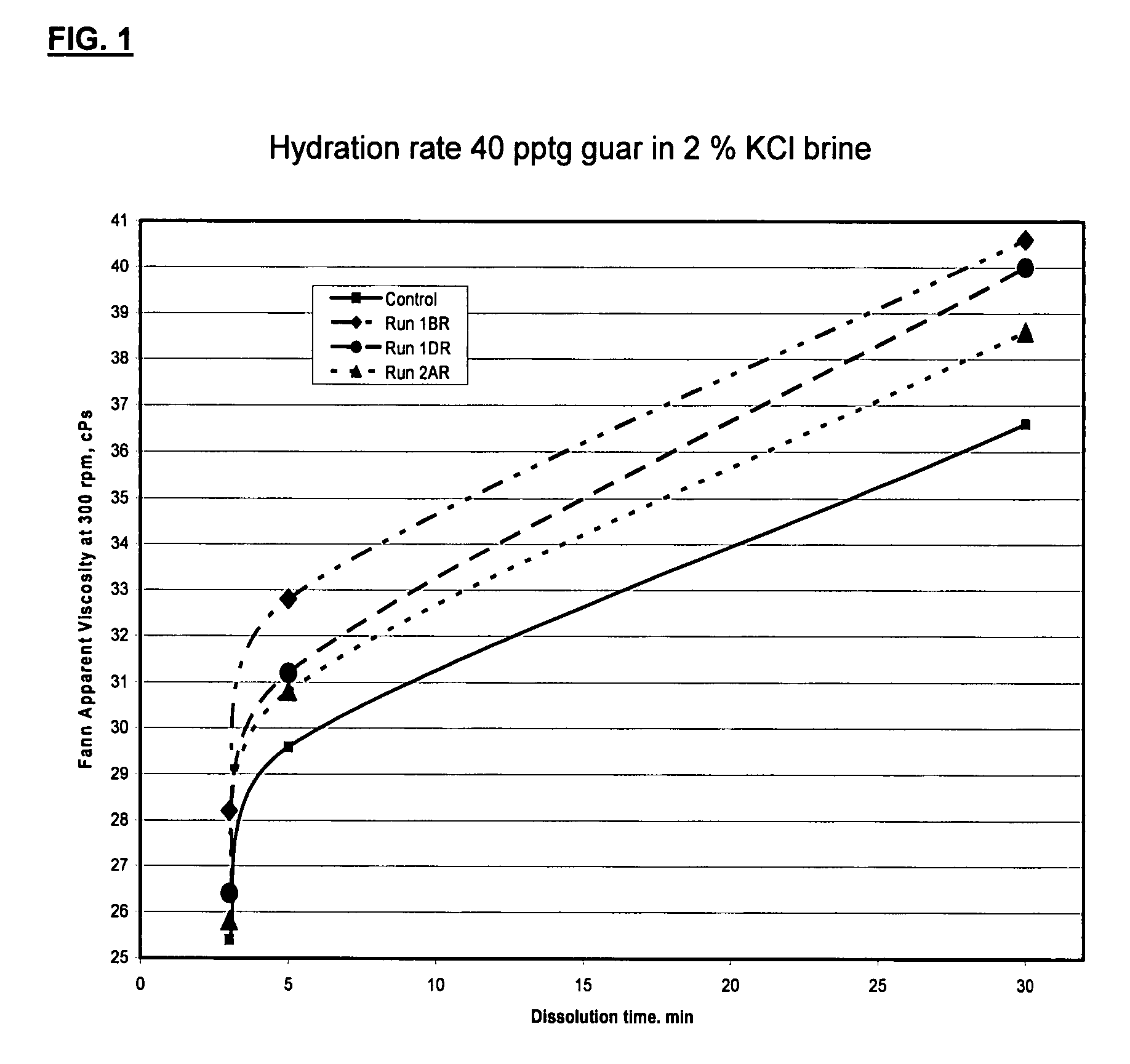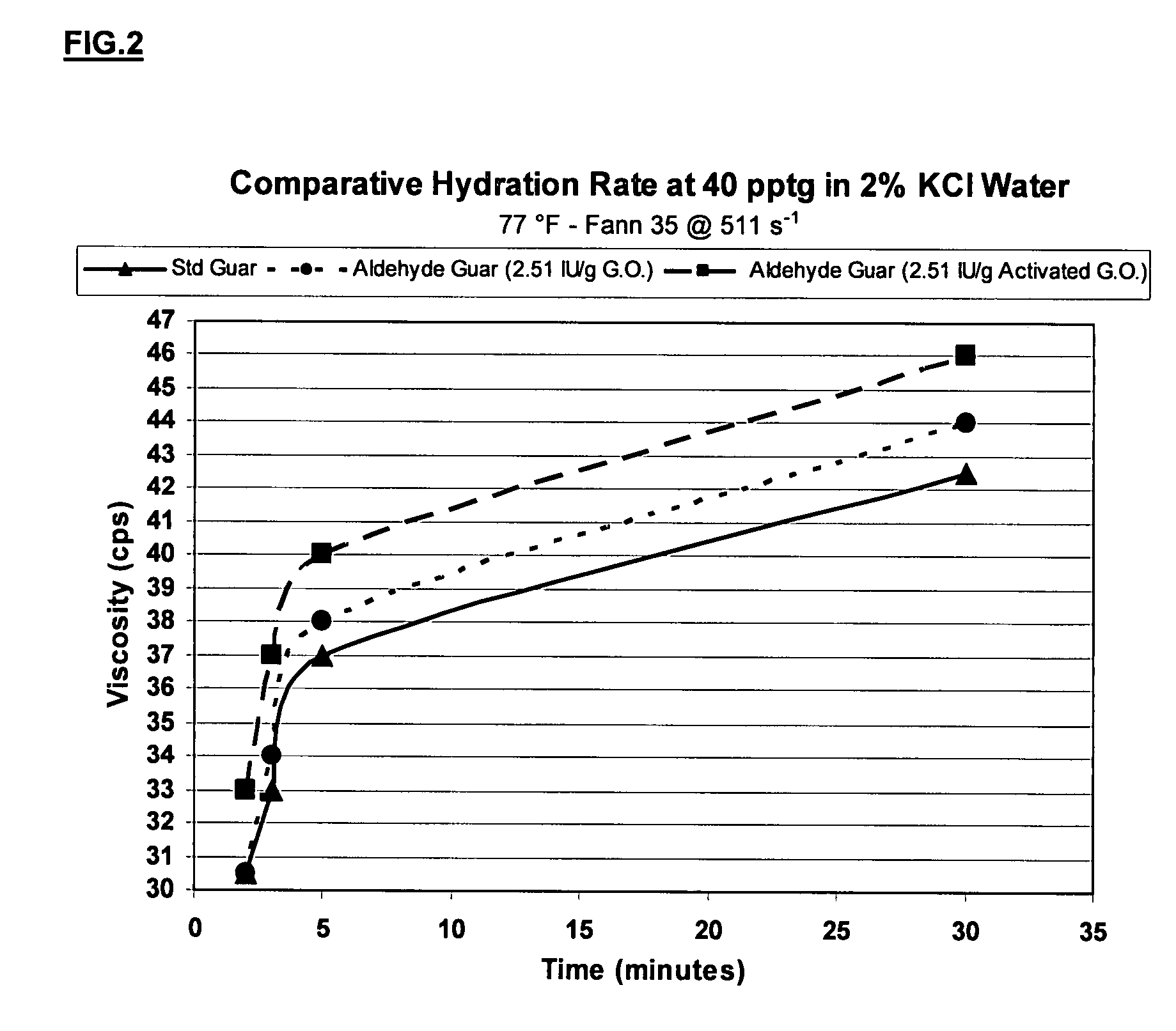Oxidized guar for oilfield servicing fluids
a technology of oilfield servicing fluid and guar, which is applied in the direction of fluid removal, chemistry apparatus and processes, and wellbore/well accessories, etc. it can solve the problems of not being able to disclose the use of oxidized polymers in oilfield servicing fluids, requiring a significant capital investment, and not being able to fully extract the optimum viscosity potential of guar splits. achieve sufficient carrying capacity and water retention, reduce loading, and high viscosity
- Summary
- Abstract
- Description
- Claims
- Application Information
AI Technical Summary
Benefits of technology
Problems solved by technology
Method used
Image
Examples
example 1
[0045]Experiments were carried out on a lab scale by diluting galactose oxidase in an amount of tempering water, then adding the tempering water containing the galactose oxidase onto guar splits and mixing the hydrating splits for 10-15 minutes. An amount of guar splits were tempered without the additional galactose oxidase for comparative purposes. The temperature of the tempering water was varied from 75° C. to 96° C. (167° F. to 205° F.). The guar splits moisture was kept around 50%. After the guar splits were tempered or hydrated, the wet guar splits were then flaked. Then, 1% solutions were prepared with the guar flakes (high shear mixing was required to ensure full dissolution). All solutions were mixed under the same conditions. After measuring the guar solutions Brookfield viscosity using a #4 spindle at 30 rpm at room temperature (approximately 21° C.), the solutions were then diluted with 4% KCl brine, corresponding to an average of 40 pptg loading in 2% KCl brine, and the...
example 2
[0049]The laboratory results of Example 1 were validated in on a plant scale. The target was to produce a fast hydrating high viscosity guar by treatment of guar splits with galactose oxidize enzymes on a larger scale. Based on previous laboratory work, the initial level of enzyme treatment was set at 2.5 IU / g of guar to achieve a minimum target Fann linear gel viscosity (300 rpm Dial Reading, at 25° C.) at 40 pptg loading in 2% KCl brine. For this trial, 34 litres of galactose oxidize enzyme solution were used.
[0050]The enzyme solution was continuously metered into the premix pot, simultaneously with tempering water and splits. The wetted splits were then hydrated for about 15 minutes before the flaking process. During the trial, several tempering conditions were investigated. The splits moisture was varied from 45% to 51% and the water temperature from 36° to 44° C. (96° to 111° F.). Guar flour samples were taken on hourly basis and the Fann viscosity was measured in order to foll...
example 3
[0058]Additional experiments were conducted in the plant using a batch process. Based on previous scaled-up experiments in Example 2 using a continuous process, initial level of enzymes treatment was set at 2.5 IU / g of guar. Later on, the efficiency of the galactose oxidase (G.O.) was increased by activating the G.O. with catalase and peroxidise. The activation of G.O. was achieved by mixing the G.O. with 8.53% catalase and 1.07% peroxidase (amount based on G.O. weight). The aldehyde guar samples were prepared by adding 0.68 kg (1.5 lb) G.O. or activated G.O. into 226.8 kg (500 lbs) wet splits (55-57% moisture) and reacted for 30 minutes at temperature varying from 27° C. to 35° C. (80° F. to 95° F.). The splits were then flaked, dried and ground. The resulting guar flour was tested for linear gel viscosity as well as for crosslinked viscosity.
[0059]The hydration rate / linear gel development of the standard guar and aldehyde guar samples was determined at a dosage of 40 pptg (pound p...
PUM
| Property | Measurement | Unit |
|---|---|---|
| temperature | aaaaa | aaaaa |
| temperature | aaaaa | aaaaa |
| temperature | aaaaa | aaaaa |
Abstract
Description
Claims
Application Information
 Login to View More
Login to View More - R&D
- Intellectual Property
- Life Sciences
- Materials
- Tech Scout
- Unparalleled Data Quality
- Higher Quality Content
- 60% Fewer Hallucinations
Browse by: Latest US Patents, China's latest patents, Technical Efficacy Thesaurus, Application Domain, Technology Topic, Popular Technical Reports.
© 2025 PatSnap. All rights reserved.Legal|Privacy policy|Modern Slavery Act Transparency Statement|Sitemap|About US| Contact US: help@patsnap.com



